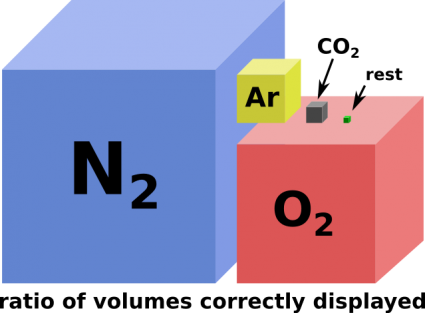Difference between revisions of "Air as a resource"
m |
|||
| Line 37: | Line 37: | ||
The versatility of [[diamondoid|diamondoid materials]] and [[diamondoid metamaterials|metamaterials]] are the reason why AP Technology can replace scarce elements with just a few [[Abundant elements|abundant ones]]. | The versatility of [[diamondoid|diamondoid materials]] and [[diamondoid metamaterials|metamaterials]] are the reason why AP Technology can replace scarce elements with just a few [[Abundant elements|abundant ones]]. | ||
| + | |||
| + | == Extraterrestrial "airs" == | ||
| + | |||
| + | See: [[Gas giant atmospheres]], [[Venus]] | ||
[[Category:Technology level III]] | [[Category:Technology level III]] | ||
Revision as of 16:00, 16 March 2015
With carbon dioxide CO2 water H2O and nitrogen gas N2 one has hydrogen carbon oxygen and nitrogen (H C O N) available. Air can thus directly be used as building material.
Air can be used by:
- any AP small scale factory equipped with means of filtereing
- air using micro ships
Related: soil as a resource
Main compounds
The limiting gas is carbon dioxide. It is by far the most abundant one in the mix that can build higly stable three dimensional networked diamondoid materials. Others elements usable as parts for the structural core like Aluminum Silicon Titanium and more only form trace amounts of dust.
When one assumes a filtering efficiency near 100% one can extract around 1kg of carbon per hour with a middle sized blowing machine (of todays technology). When beta carbon nitride (Wikipedia) (which's properties are not well known yet) is used as structural material this mass roughly doubles. Structures of pure solid (sp3) nitrogen can be produced but they are higly explosive. (Easy production of explosives is one of APM's dangers.)
Argon as a noble gas does not form bonds. It may be used to fill Nanofactories at the lowest levels that need a vacuum equivalent environment.
Traces
Whats lacking most are heavier elements. Sulfur for example turned out to be useful for DMME bearings since it has larger diameter than it's cousin oxygen and can thus form deeper grooves. It shouldn't be hard to get along without it though.
Traces of sulfur are present in the form of sulfur hexafluoride (Wikipedia). Industrial activity has elevated the leves from below 4 ppt to above 7 ppt in the last sixteen years.
Another trace gas that is encountered in the linde cycle (Wikipedia) is tetrafluoromethane (Wikipedia).
Further noble trace gasses: Neon Helium Kryptom und Xenon
Notes
The versatility of diamondoid materials and metamaterials are the reason why AP Technology can replace scarce elements with just a few abundant ones.
Extraterrestrial "airs"
See: Gas giant atmospheres, Venus
